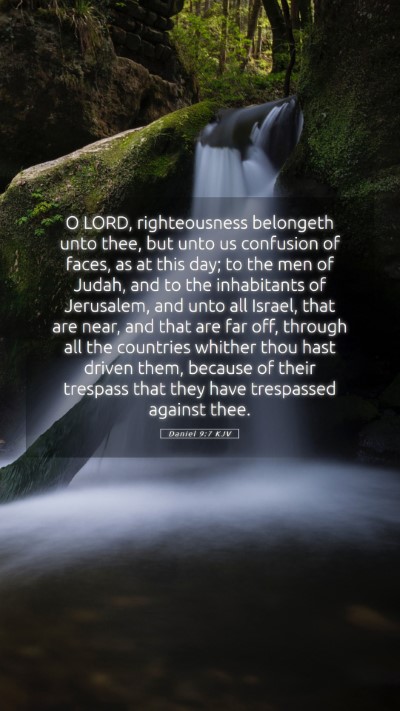Old Testament
Genesis Exodus Leviticus Numbers Deuteronomy Joshua Judges Ruth 1 Samuel 2 Samuel 1 Kings 2 Kings 1 Chronicles 2 Chronicles Ezra Nehemiah Esther Job Psalms Proverbs Ecclesiastes Song of Solomon Isaiah Jeremiah Lamentations Ezekiel Daniel Hosea Joel Amos Obadiah Jonah Micah Nahum Habakkuk Zephaniah Haggai Zechariah MalachiVerse
Daniel 9:1 Daniel 9:2 Daniel 9:3 Daniel 9:4 Daniel 9:5 Daniel 9:6 Daniel 9:7 Daniel 9:8 Daniel 9:9 Daniel 9:10 Daniel 9:11 Daniel 9:12 Daniel 9:13 Daniel 9:14 Daniel 9:15 Daniel 9:16 Daniel 9:17 Daniel 9:18 Daniel 9:19 Daniel 9:20 Daniel 9:21 Daniel 9:22 Daniel 9:23 Daniel 9:24 Daniel 9:25 Daniel 9:26 Daniel 9:27

